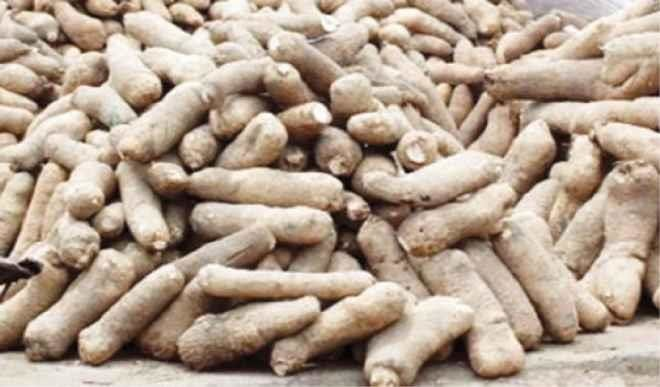Technical Committee on Nigeria’s Yam Export Programme, said on Thursday that the committee was set to take possession of the Ikorodu terminal to facilitate yam exports in the first quarter of 2019.
Prof. Simon Irtwange, Chairman of the committee, said this in an interview with the News Agency of Nigeria (NAN) in Lagos.
According to him, the terminal has been officially designated as a base for the exportation of yam and other agricultural produce.
“This means that all vehicles and trucks carrying yams for export will head towards the Ikorodu terminal, instead of the Apapa Ports.
“This is one of the high points of achievements recorded by the Committee in 2018.
“At least, it will go a long way in helping the vehicles to avoid the Apapa gridlocks, save the time the produce gets to the ships and reduce the number of wastages through spoilage.
“With reduced time and spoilage, farmers will be encouraged to bring in more produce for export,’’ he said.
Irtwange said that since most of the produce were perishable and had a time frame depending on storage, as more of the produce would be shipped and get to their destinations intact.
He said that in the past, the produce would start spoiling while on its way to the ports through the Apapa roads which usually resulted in heavy losses for farmers and the vehicles.
The Technical committee chairman said that the delays at Apapa due to the gridlocks had also resulted in the exporters not meeting the ships’ time schedules.
He said that while waiting for the ships to return, some of the intended export produce would have started going bad.
Irtwange said that the committee had also started talking with some airlines to see how their cargo compartments could be used for yam export.
He said the talks which started in 2018 would be concluded with agreements and financial costs in 2019.
Irtwange said that the committee would do everything to establish the exportation of yam on a permanent basis.
He said in addition to exporting raw yam, the committee had also talking with yam processors, as their packaged products can also be exported to earn more foreign exchange for the country.











